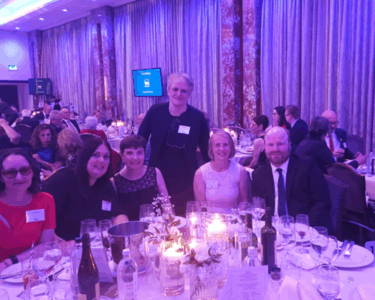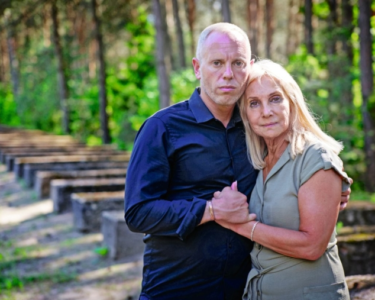Feature by Rebecca Hale, published in TES 30/04/2024
A survey by the UCL Centre for Holocaust Education aims to uncover how students are learning about the subject and provide guidance to teachers on tackling misinformation and misunderstandings.
For more than 30 years, the Holocaust has been taught as part of the national curriculum in history, as well as being covered in other subjects, such as religious education, citizenship and English.
It is a period of history that many people encounter from a young age, often while at primary school, as well as through books, television, films and, in more recent years, online content.
So it should not be a huge surprise to learn that research by the UCL Centre for Holocaust Education (CFHE) previously found that by the time young people learn about the Holocaust at school, numerous misconceptions have already become embedded in their understanding about the subject.
The importance of connections
In light of this, it is essential that young people benefit from the highest quality Holocaust education within schools, especially given the widespread aim of drawing on the Holocaust to learn lessons from the past.
Without sound historical knowledge, the ability to making meaningful connections between the past and present is compromised.
For example, what message do students take away when they erroneously believe that Hitler is solely responsible for the Holocaust (as more than half of key stage 3 students believed in 2016)?
Compare this with the insight that can be derived from understanding the roles of different perpetrators in broader society, including the collaboration and complicity of German and non-German citizens across Europe.
Without this richer understanding, students struggle to recognise how genocide unfolds.
All of which means that teachers are even more important in this field. Teaching and learning about the Holocaust has always been challenging; teachers and students must grapple with the horrific nature of the material and the uncomfortable questions it raises about humanity.
The peril of fake news
However, in recent years, teaching about the Holocaust has become more complex, potentially contributing to a significant and, at times, troubling impact on their knowledge and understanding of the subject.
For example, research has highlighted the influence of worrying online content. In a recent national study by the UCL Centre for Holocaust Education, 74 per cent of teachers said they encountered students who believed the information that they found on the internet, regardless of its source or accuracy. This is especially troubling given the proliferation of “fake news”.
And in 2021, researchers found that material that denied or distorted the Holocaust was available on several major online platforms. For example, 19 per cent of Holocaust-related content on Twitter and 17 per cent on TikTok denied or distorted its history.
These online patterns have been replicated offline too. The Community Security Trust was already reporting a general upward trajectory of antisemitic incidents in the UK over the past decade, but since the Hamas terror attack on Israel on 7 October, this has increased by 589 per cent.
Teachers have also told the UCL CFHE about their concerns within the context of Holocaust education.
This includes the enormously worrying belief that a school’s commitment to teaching about the Holocaust is indicative of the school “taking sides”, as well as students and parents conflating the events currently unfolding in the Middle East with the Holocaust.
Understanding what is happening
Understandably, teachers said they were unsure about how to navigate this complex terrain with students.
In light of the challenges teachers have reported in recent years, it is vital to provide support to develop their confidence and expertise when teaching about the Holocaust.
However, support and training will be meaningful only if it responds to what is happening within the classroom, which is why we have launched a new national survey on the subject, which will run until the end of July.
The survey explores students’ knowledge and understanding of the Holocaust, where and when they have learned about the Holocaust inside and outside school, as well as looking more broadly at the trust young people have in different media sources, including traditional media, online platforms and chatbots. Teachers will also be invited to share their recent experiences of teaching about the Holocaust.
Teachers must be supported at this incredibly challenging time to teach the most incredibly upsetting episode in modern history. That is what we seek to do. Please support this by helping us to find out what exactly is happening in your classroom.
The centre is currently looking for secondary schools across England to take part. If your students are in Year 8 or above and have learned about the Holocaust (within any subject) at any point while at secondary school, they are eligible to participate.
Researchers at the centre will send you all the information you need to oversee the survey with your class(es). To find out more, email the UCL Centre for Holocaust Education research team: CHE.Research@ucl.ac.uk
Rebecca Hale is senior research fellow at the UCL Centre for Holocaust Education



